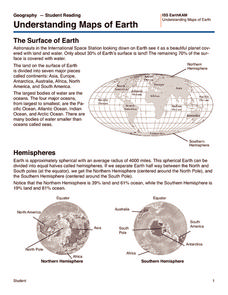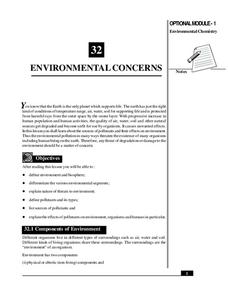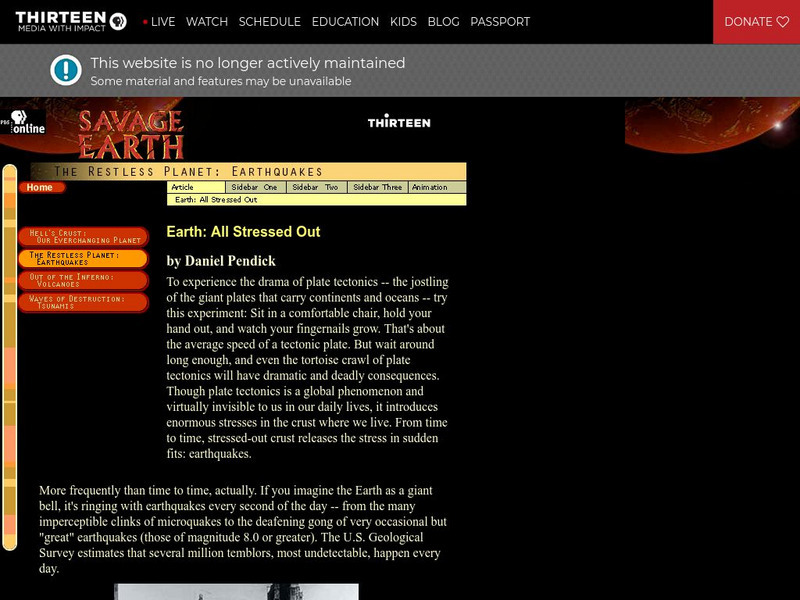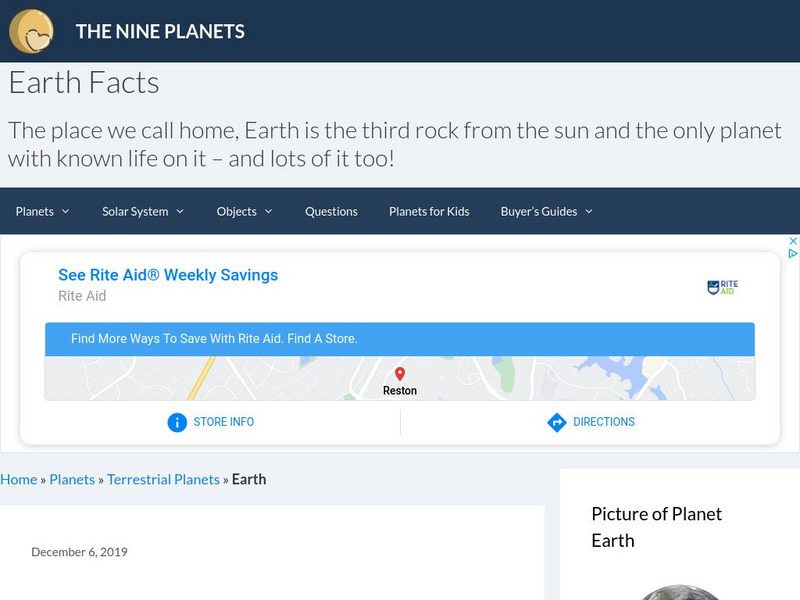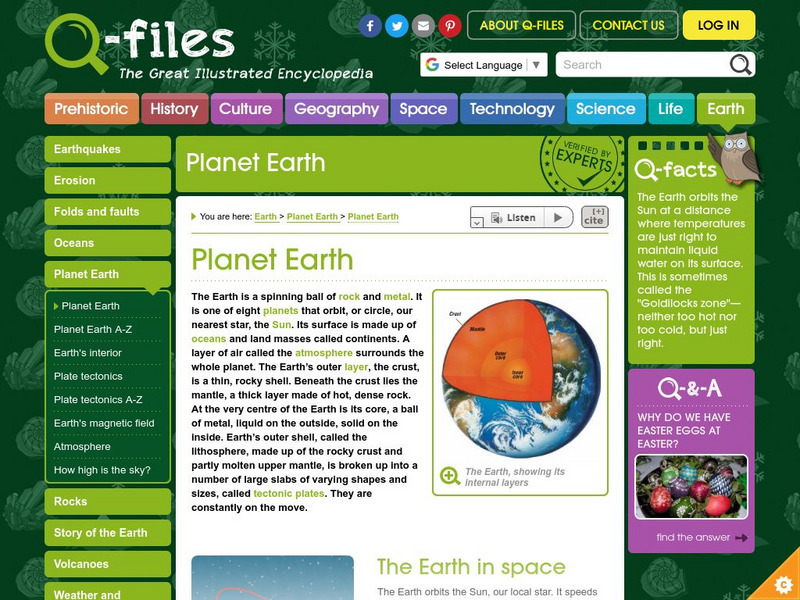Laboratory for Atmospheric and Space Physics
The Planets and Scale
Scholars gain an insight into the relative size of planets and distance between inner and outer planets with the help of informational text, a data table, and a series of four questions.
Institute for Geophysics
Understanding Maps of Earth
Here is your go-to student resource on primary geography concepts, including facts about the surface of the earth and its hemispheres, latitude and longitude, globes, types of maps, and identifying continents and oceans.
Mr. Hill's Science Website
Solar System Fact Sheet
Here is a fantastic, educational handout packed with information and facts not only about the planets in our solar system, but also regarding major moons and their surface features, dwarf planets, comets, and asteroids.
Oregon State
World Map of Plate Boundaries
Young geologists piece together the puzzle of plate tectonics in an earth science lesson. Given a physical map of the world, they search for land formations that indicate the location of different types of plate boundaries.
International Technology Education Association
Tidy Up Those Sloppy Force Fields!
It is just magnetic. This resource presents the concept of Earth's and another planet's magnetic field and how spacecrafts detect them. Learners study a problem using magnetometers and participate in three experiments to come up with a...
Curated OER
First Land Plants Found on Earth
In this first land plants worksheet, students read about the major events that allowed plants to evolve on Earth. Students read about the primary and secondary atmospheres, the formation of the ozone layer to protect from UV light and...
Curated OER
The Earth
In this earth fact worksheet, students look at a picture of the planet earth and read a list of accompanying facts, along with a brief paragraph.
Curated OER
The Planet Saturn
In this worksheet on the planet Saturn, students look at a picture of the planet and read accompanying facts, along with a brief paragraph.
Curated OER
The Planet Mars
In this worksheet on the planet Mars, students look at a picture of the planet and read accompanying facts, along with a brief paragraph.
Curated OER
The Planet Venus
In this worksheet on the planet Venus, students look at a picture of the planet and read accompanying facts, along with a brief paragraph.
Laboratory for Atmospheric and Space Physics
Charting the Progress of New Horizons
In 2006, New Horizons began its mission to fly to Pluto. As it continues its journey, scholars track its progress with the help of an informative website, all the while reinforcing measurement concepts with the construction of a scaled...
Laboratory for Atmospheric and Space Physics
Looking to the Future
New Horizons set forth on a mission to Pluto in 2006. Ten years later, the spacecraft is still on its way. Here, enthusiastic scholars predict what they will be like—likes, dislikes, hobbies, etc.—when New Horizons arrives at its...
Wilderness Classroom
Ocean Life
Our oceans are composed of many complex relationships. Young oceanographers explore relationships between organisms, understand the world ocean's currents, and discover the effects of water pollution and how it behaves. There are...
National Institute of Open Schooling
Environmental Concerns
Every year, more than 14 billion pounds of garbage is dumped into the oceans of the world, most of which is plastic and toxic to ocean life. Lesson 32 in the series of 36 focuses on environmental concerns, specifically pollution. Under...
National Institute of Open Schooling
Water Pollution
Fifteen million children under the age of five die each year due to diseases in their drinking water. Water pollution is the topic of lesson 34 in the series of 36. Scholars, through reading and discussing, study numerous aspects of...
International Technology Education Association
Pixel This!
Did the image I drew match the image you saw? By simulating a satellite and a ground station, teams of two transmit data in the form of pixels in order to recreate an image. They use four different levels of brightness, creating slightly...
Rensselaer Polytechnic Institute
Molecules to the Max!—Teacher's Discovery Guide
Molecules to the Max! refers to a movie released in 2009 about the world of atoms and molecules. A helpful discovery guide provides five posters on science topics typically covered at the middle school level. It also explains the...
NASA
Nasa: The Space Place: Planet X Treme Weather
Ever wonder what the weather is like on other planets besides Earth? This resource explores the extreme weather that occurs on other planets.
Smithsonian Institution
National Air and Space Museum: Exploring the Planets: Our Solar System
Take a tour of our solar system and learn fascinating details and observations about the planets.
PBS
Wnet: Thirteen: Savage Earth: The Restless Planet Earthquakes
Discussion of liquefaction and landslides which are two of the many effects of earthquakes.
Nine Planets
The Eight Planets: Earth
Excellent Eight Planets site that provides a vast amount of information about planet Earth. Very comprehensive and complete site.
Nine Planets
The Nine Planets: Earth Facts
Find lots of information about our planet Earth here. Covers basic facts, Earth's history, layers of the Earth, plate tectonics, composition of the atmosphere, Earth's magnetic field, and some facts about our moon.
Smithsonian Institution
National Air and Space Museum: Exploring the Planets: Tools of Exploration
Part of the National Air and Space Museum's online exhibition about Exploring Planets, this describes and gives visuals of telescopes, probes and fly-by aircrafts, orbiters, and landers as current methods for earth and airborne...
Orpheus Books
Q Files: Planet Earth: Planet Earth
Earth's features and facts are discovered and explained in this brief entry. Identify what makes this planet special.
Other popular searches
- Planet Earth
- Planet Earth Dvd Series
- Planet Earth and Bbc
- Planet Earth Seasons
- Planet Earth and Beyond
- Bbc's Planet Earth
- Planet Earth Dvd
- Bbc Planet Earth
- Planet Earth Ocean
- Extreme Planet Earth
- Planet Earth Great Plains
- The Planet Earth

